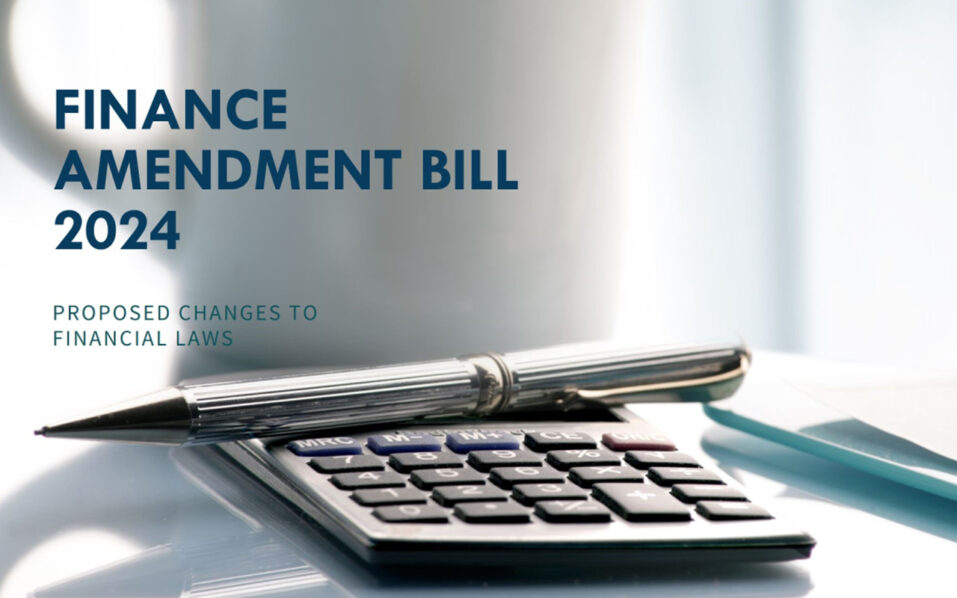
The Finance (Amendment) Act 2024 inserted a commencement clause intended to apply the Act retrospectively, but it did not clearly set out a retrospective clause. The commencement clause simply states: “The provisions of section 30 shall apply from 1st January, 2023.”
It can be argued that this does not qualify as an express retrospective provision and still suffers from the defects identified by the Judge in Accugas case. The commencement clause, much like an interpretation clause, is not considered part of the substantive law.
For an Act to have retrospective effect, this must be explicitly stated in the substantive provisions of the law. Therefore, in the absence of an express provision in the substantive part of the Finance Amendment Act, stating that it is to operate retrospectively, the Act fails to meet the requirement that the retrospective application of a law must be clearly included in the Act.
Furthermore, by imposing tax liabilities on transactions completed before the enactment of the law, the Act disrupts settled financial positions, undermining the tax principles of certainty and predictability.
Criminalisation of non-compliance
The National Assembly does not have the constitutional authority to pass laws with retroactive criminal penalties, as seen in the Finance Amendment Act. The imposition of retroactive taxes, in itself, is arguably not prohibited by the Nigerian Constitution. However, criminalising the non-payment of taxes that were imposed retroactively presents a major constitutional problem as it conflicts with Section 4(9) and Section 36(8) of the Constitution of the Federal Republic of Nigeria.
Section 4(9) of the Constitution explicitly prohibits the National Assembly from making laws with retrospective effect in relation to criminal offences.
“Notwithstanding the foregoing provisions of this section, the National Assembly or a House of Assembly shall not, in relation to any criminal offence whatsoever, have power to make any law which shall have retrospective effect.”
Similarly, Section 36(8) of the Constitution prohibits retroactive criminal legislation:
“No person shall be held to be guilty of a criminal offence on account of any act or omission that did not, at the time it took place, constitute such an offence…”
Although Section 31 gives the impression that the application of criminal penalties will begin from December 31, 2024, it is hard to see how the FIRS can enforce this provision without violating the constitution. The implication of Section 32 of the Finance Amendment Act which seemingly excludes the criminal liability from applying from January 2024 creates a potential overlap between tax liability and criminal liability.
Banks are placed in a legal limbo, where they are exposed to criminal sanctions for non-compliance with a tax regime that was neither enforceable nor known during the time of the foreign exchange transactions. This ambiguity raises the question: Will banks that fail to pay the retroactive tax dating back to January 1, 2023, be subject to criminal prosecution even though the criminal liability clause applies from December 2024?
Given the criminal nature of the provision of Section 31(2) of the Finance Amendment Act, the Constitution’s prohibition against ex post facto laws is applicable, rendering the retroactive imposition of these penalties unconstitutional.
Elements of an offence
The Finance Amendment Act imposes criminal sanctions retroactively making the non-payment of windfall taxes by banks an offence punishable by fines and imprisonment of their officers for a term not exceeding three months. A review of the Act presents a key issue arising from the lack of a clear definition of the elements constituting the offence. This is bad for vagueness and violates the constitutional standard laid out in Section 36(12) of the 1999 Constitution of the Federal Republic of Nigeria (as amended).
Subject as otherwise provided by this Constitution, a person shall not be convicted of a criminal offence unless that offence is defined and the penalty therefore is prescribed in a written law; and in this subsection, a written law refers to an Act of the National Assembly or a Law of a State, any subsidiary legislation or instrument under the provisions of a law.
Without a clear actus reus (the failure to pay the tax) and a well-defined mens rea (whether the failure was intentional, negligent, or without fault) in a law creating an offence, such law leaves too much discretion to enforcement authorities.
This undermines the principles of fairness and legal certainty and casts doubt on the legality of the Finance Amendment Act. Hence, the absence of clearly defined elements for the offence in the Finance Amendment Act not only violates constitutional principles but also undermines fundamental criminal law principles that require both the physical act (actus reus) and the mental state (mens rea) to be established beyond reasonable doubt for criminal liability to be imposed.
Conclusion
The retrospective imposition of taxes coupled with the criminalisation of non-compliance raises profound constitutional concerns. The National Assembly lacks the constitutional power to enact laws that retrospectively impose criminal penalties. Hence, the attempt of the Finance Amendment Act to retroactively apply a 70 per cent windfall tax from January 1, 2023, and impose criminal liability for non-payment violates the constitution, jeopardises the rule of law.
Concluded.
Odunze is an Associate at Olisa Agbakoba Legal.






